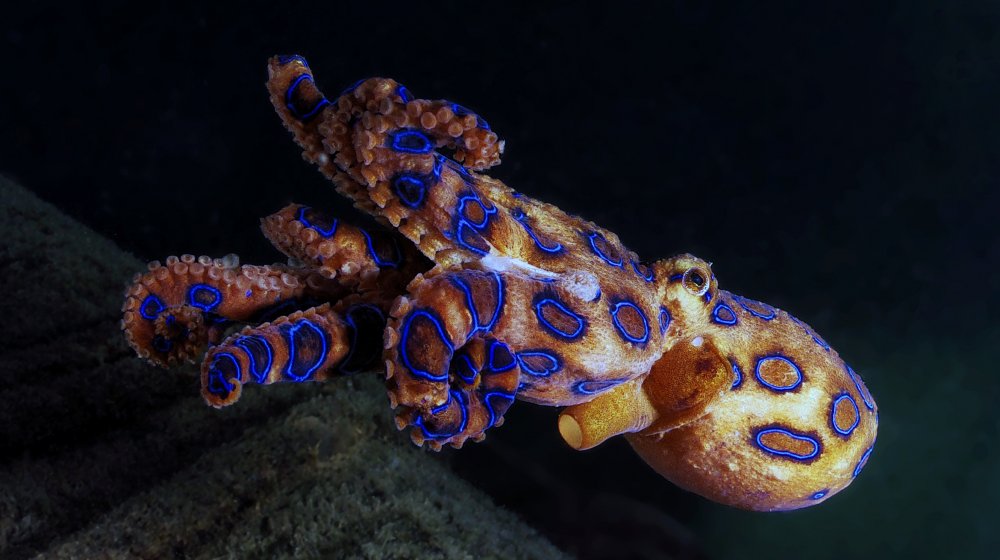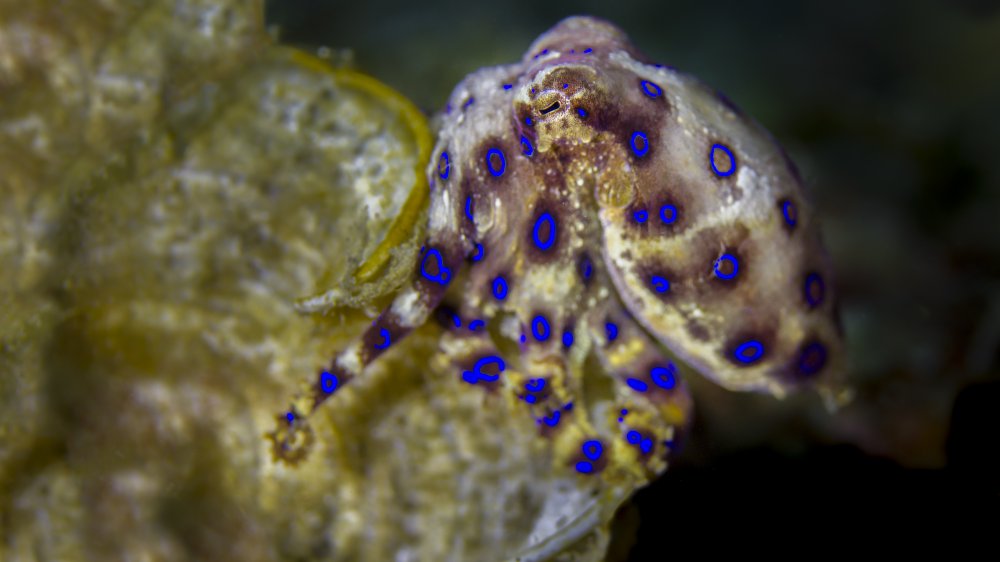The Truth About The Deadliest Octopus In The World
"Small and kind of cute" doesn't necessarily mean "small and kind of cute and harmless," as any Peter Dinklage fan knows. Add "kind of cute, for something boneless" and it doesn't change. Case in point: the blue-ringed octopus. Small, and kind of cute, but astonishingly deadly. Try to stay on its good side.
The good news is, they're mostly found around the southern shores of Australia, which just seems to have more than its share of weird-but-deadly animal life, honestly. The octopus in question is also found throughout the Indo-Pacific Ocean, according to All That's Interesting. More good news: like most members of the octopus family, they'd much rather keep to themselves when they aren't out foraging for food. Very much a case of, leave them alone and they won't kill you.
The blue-ringed octopus really is tiny: maybe five inches in diameter, weighing maybe an ounce. An octopus, so eight arms. The beastie gets its name from what happens when it's threatened: bright blue rings appear all over its body, a warning to whatever or whoever might be too close for its comfort. (Boundaries, dude.) They live for four or five years in the wild.
You won't like it if it gets angry
If you run across one in a tide pool Down Under and make the mistake of thinking you'll pick it up to have a closer look, and the bright blue rings show up, you have a very good chance of dying. They produce a venom called tetrodotoxin, says The Ocean Conservancy. It's similar to what's found in pufferfish, and is useful for hunting: it causes paralysis in the prey, allowing easy consumption by the octopus. And if it happens to you?
Just one of these dainty rascals packs enough venom to kill 26 human beings, per The Mother Nature Network. You might not even notice at first — the bite is painless. Once bitten, there will be muscle numbness — the venom blocks nerve signals "throughout the body," says the Conservancy. Also nausea, blindness, loss of other senses, and loss of motor skills. "Ultimately, it will cause muscle paralysis — including the muscles needed for humans to breathe, leading to respiratory arrest," the Conservancy says, adding, "There is no known antidote." Your best hope is immediate artificial respiration.
On the glass-is-half-full side, there have been no known deaths since the 1960s. Maybe people really can be taught.

